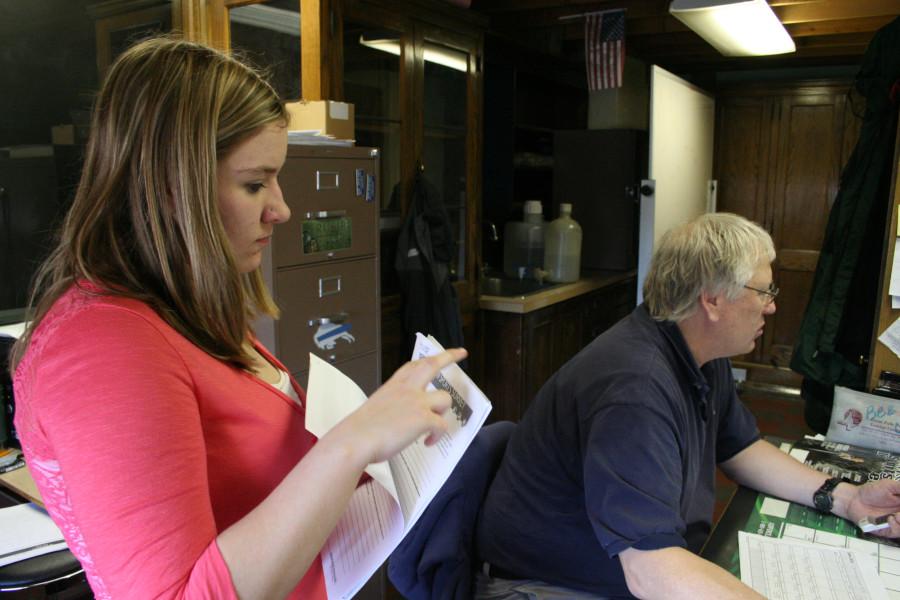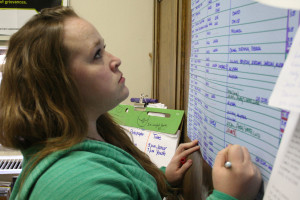Montana Journalist of the Year – Information
July 29, 2015
MJEA, your state scholastic press organization, supports student achievement. Members would like to highlight the best and brightest students through the state and national Student Journalist of the Year competition.
To be eligible for MJEA and JEA’s Journalist of the Year scholarships, Montana students must meet both the MJEA state guidelines and submission deadlines as well as the JEA’s requirements.
If advisers and/or students have questions, a compiled list of frequently asked questions and answers about the Journalist of the Year guidelines and deadlines has been posted to the jea.org
GUIDELINES
TO APPLY
The components of the Montana SJOY process align with those of the national JEA SJOY process.
Montana students must:
- Meet all national requirements and guidelines for online portfolio submission.
- Have an adviser who is a current MJEA and JEA member.
- The student must be a senior who has participated in student media for a minimum of two years.
- Entrants must submit a state application and supporting materials in an online portfolio to the JEA Montana State Director, Linda Ballew, to the DropBox on or before Feb. 13, 2015. For an invitation to the DropBox, email Ballew with an email address and she will send you instructions for the DropBox: [email protected]
- Late submissions will not be accepted.
Application: MT student-journalist-of-the-year-application
- Please download and attach the PDF file in an email to Linda Ballew and also as part of the DropBox submission.
Supporting documents:
- Scanned and submitted as PDF files:
- Official high school transcript including journalism classes taken and a counselor’s statement, grades and current GPA. Student should be a high school senior and should have an overall GPA of at least a 3.0 on a 4.0 scale.
- Action photo of applicant involved in some aspect of student media.
- Three letters of recommendation from those who know the applicant well and understand the impact of the journalistic experience on the student’s life. No letter should exceed two pages in length.
- Personal resume.
- Self-analytical essay: Students should write with passion and make an impact on judges because this essay functions as the applicant’s one-on-one interview with the judges. Essay should not exceed two pages in length.
- Submit an online portfolio meeting the national expectations.
(For step by step information on setting up the portfolio look here.)
- No personal information should be included in your online portfolio. This way your privacy will be secure. The URL you provide on the application will be all the judge needs.
- Work examples are part of presentation where candidates can showcase their progress over time as a student journalist.
- Applicants can choose any platform they wish to present their work examples. Here is more information from JEA:
- Broadcast/video samples should be no longer than 15 minutes in length.
- Work examples in the online portfolio should be organized according to the following 11 categories: Design, Editing, Entrepreneurship, Law and Ethics, Leadership and Team Building, Multi-Media Broadcast, News Gathering, News Literacy, Photojournalism, Web, Writing. See this JEA tutorial for more information:
- Each work example for the portfolio must be labeled with the applicable category, evidence of usage/publication of example, awards/contests entered and explanation/reasoning for each example. The Explanation/Reasoning may include the applicant’s explanation about the specific assignment. Include any difficulties encountered with the assignment and special circumstances affecting it. Explanation should be 25-50 words in length, easy to read and should explain why this entry is important and was chosen for the portfolio.
- The applicant’s personality should be evident in the entry. The student should choose a design/ for the portfolio
- Examples of previous national entries: *** Keep in mind the contest submission process and organization of work examples changed this year. The winning examples below were submitted two years ago and last year.
Options for Online Presentations of Work Samples
SUBMIT MATERIALS to the DropBox. For an invite to the DropBox, send an email address to JEA’s Montana State Director, Linda Ballew: [email protected]
MJEA would like to thank Rebecca Pollard, CJE, who is the JEA awards committee leader for the videos and examples.
TIPS FOR A SUCCESSFUL SUBMISSION
- Test every document you plan to send. Do these open? Do these look perfect? Does your URL work?
- Use a non-school email to submit your entry. Many schools limit the size of email attachments students may send. Do not risk yours being caught in a blocker.
- Choose a professional email address, like your first and last name, or an initial and your last name. Remember first impressions are important, [email protected] or [email protected] don’t say “professional student journalist.”
SCORING: The state SJOY judge will use the Montana SJOY Contest Scoring Rubric aligned to the same criteria of the national JOY judges. All categories and possible points are the same between the state and national scoring rubrics. The only difference is the addition of spaces for judge’s feedback to be made to the student applicant. It is the hope this feedback will assist the state winner in making any revisions prior to applying to the national Student Journalist of the Year contest.
2015 MONTANA SJOY JUDGE: MJEA is pleased to announce the
Student Journalist of the Year judge, Larry Abramson.
Abramson is the eighth dean in the 100-year history of the University of Montana School of Journalism. He moved to Missoula from Washington, D.C., where he spent three decades as a professional journalist, nearly all of them at National Public Radio.
At NPR, Abramson had a chance to work in many different parts of the organization. He began as a tape-cutter on the graveyard shift at Morning Edition and ended his radio career as Pentagon Correspondent, responsible for following the Secretary of Defense around the world on the Air Force jet known as the “Doomsday Plane.” In between, Abramson ran NPR’s National Desk, the home to the network’s domestic reporting staff. He help to grow the resources of the desk, which won awards for coverage of several big stories, from the Rodney King riots to the Waco siege.
In 1997, Abramson switched over to a reporting role. He covered a wide array of government agencies in Washington including the FBI, the Federal Communications Commission and Defense Department. Abramson also spent five years as NPR’s Education Correspondent. One of his favorite assignments involved making regular visits to New Orleans to track the progress of the city’s schools following Hurricane Katrina. Abramson’s NPR work took him all over the U.S. and to Europe, Asia, South America and the Middle East.
Dean Abramson lives in Missoula with his wife Anita Huslin and their cats, Calvin and Hobbes. His son Seth serves in the U.S. Air Force in Clovis, New Mexico.
STATE WINNER: The state winner will be notified in mid-February. S/he will be given time to review the judge’s comments, make revisions where needed, and submit his/her national application to the JEA State Director Linda Ballew. The same materials may be used at both levels of the contest. The applicant will need to submit the JEA national application and follow those requirements and guidelines for submission.
QUESTIONS: If you have questions, please contact Montana’s Journalism Education Association State Director Linda Ballew, MJE. 2212 4th St. S., Great Falls, MT 59405 Phone: 406.799.8313 Email: [email protected]



